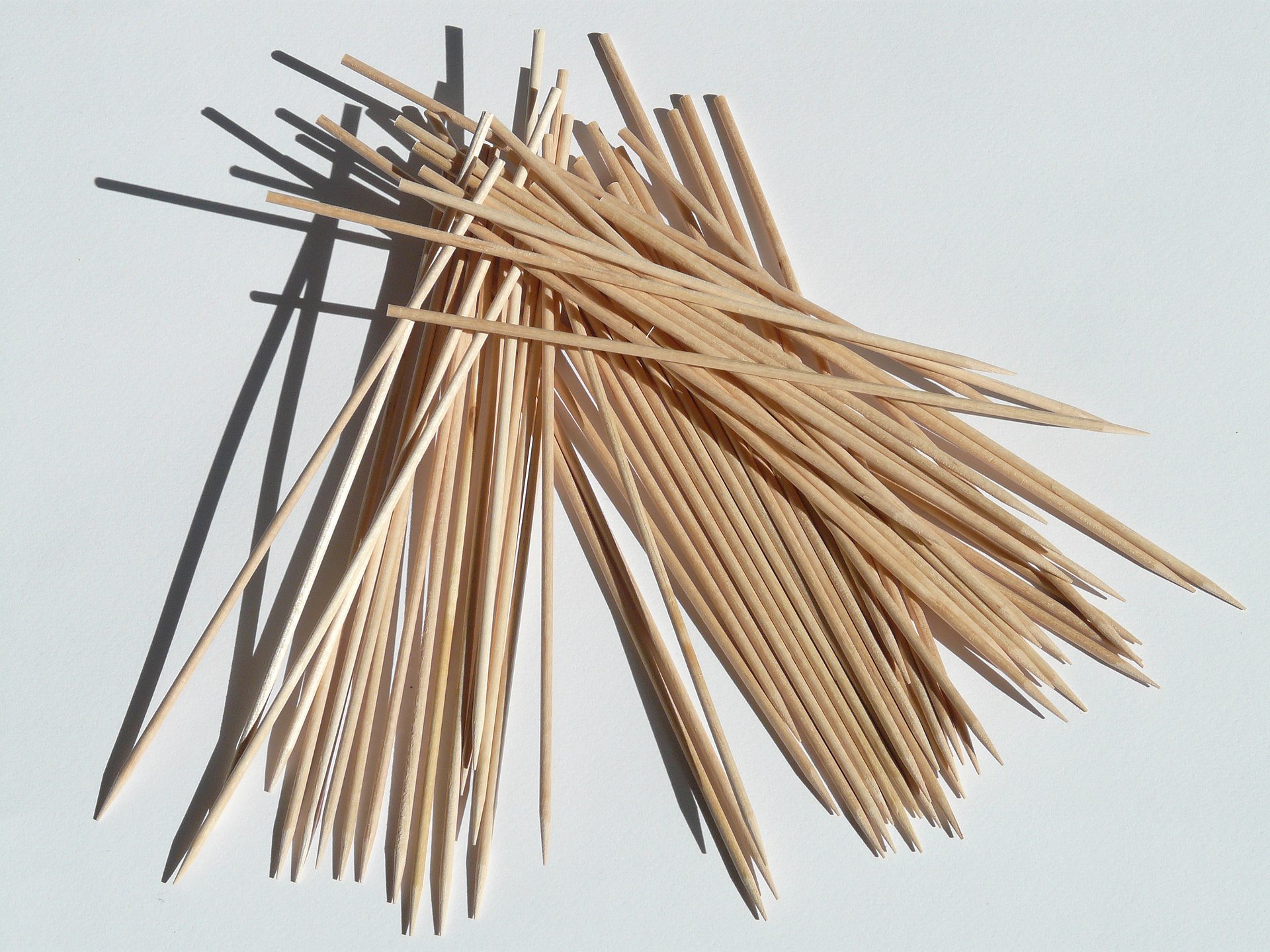- cross-posted to:
- Anticonsumption@europe.pub
- anticonsumption@slrpnk.net
- cross-posted to:
- Anticonsumption@europe.pub
- anticonsumption@slrpnk.net
‘Most millennials aren’t buying enough of our shit and that’s a HUGE PROBLEM that all of you definitely care about!’
That’s some pretty useful advice in the comments tho. But also I’m 52 years old and have literally never used fabric softener in my life and have no idea what it’s supposed to be for other than making companies like Proctor & Gamble even more money.
Also, another handy tip: ‘lather, rinse, repeat’ is bullshit, unless you have really thick or really oily hair and don’t wash regularly, you don’t need to wash it twice, the shampoo company just wants you to buy more. Same with fill marks in a washing machine, unless you’re doing a huge load there’s no reason to fill it all the way up.
and don’t wash regularly
Even washing hair regularly is a scam. If you wash once a week your hair will be fine. It’ll look like shit for a few weeks until your scalp gets the message that you aren’t stripping away all the natural oils still and that it can cut back on oil production but afterwards your hair will be healthier.
I’m sorry to have to say, but the idea of “hair training” is a myth.
The oil glands (which are known as sebaceous glands, and produce an oil called “sebum”) are controlled by genetics, hormones, and stress. Sebaceous glands don’t have any sort of “sensor” to tell them when to produce more/less oil, so washing or not washing won’t make a difference.
I knew /r/nopoo was a lie!
Thank you. I have extra oily hair so if I skip washing it even a single day it starts to look like I’m using pomade, and whenever I tell people this they always insist I should just wash it once a week and my head will “adjust.”
I am the exact same, friend. My hair becomes a big oil slick after only a day without washing and it’s really obvious. Which is part of why this particular myth bothers me so much.
First, as teens, we had uninformed randos without oily skin telling us to heal our acne problems by putting nonsense like toothpaste and silly putty on our faces. Now, those same uninformed, non-oily randos tell us that our greasy hair can be solved by not washing it.
But my dermatologist was right about the acne care they recommended, I’m inclined to trust them about my scalp care too.
Yep, I had really bad acne when I was younger and the only thing that worked was isotretinoin, which is rough. My lips cracked and bled while I was taking that but when I was finished the acne was gone.
They made me pledge not to get pregnant while taking it despite the fact that I don’t have a uterus, lol.
I took that stuff too (aka accutane). Severest depression I’ve ever experienced but I’m thankful to only get the occasional acne as an adult now.
This is true, but greasy hair looks greasy and makes your pillow smell bad which impacts your ability to fall asleep.
Like sure, it’s not natural to wash your hair every 2/3 days, but imo it’s worth it
No, your hair stops becoming greasy. That’s the point. It gets that way because you’re stripping the oils, so it produces more to replinish it. If you stop then your scalp eventually adjusts and stops producing much oil.
People think greasy hair is just what happens, but no. It’s what happens when you’ve been stripping your hair dry for years and your scalp is trying it’s best to fix the problems you’re causing. Stop causing problems and it’ll normalize.
I wash with water frequently, but when I really need a good clean I wash with conditioner. The oils bind and are removed but your hair will be refreshed. I rarely wash with shampoo, for years at this point, and my hair isn’t greasy. It just feels healthy.
It’s what happens when you’ve been stripping your hair dry for years and your scalp is trying it’s best to fix the problems you’re causing. Stop causing problems and it’ll normalize.
Please do explain how an exocrine gland on the scalp is supposed to know how much oil is on a strand of dead hair cells, located inches away from the skin?
I think that it’s because the scalp itself gets dried out from too much washing, so the glands respond to that.
When the scalp skin “normalizes” the hair slowly normalizes as well, since the oil travels down the strands.
That’s my guess. I went from shampooing daily to every other day and at first I would get an itchy, gummy scalp. But eventually that gummyness worked it’s way out. Every time I shampooed I would get that dry, gummy scalp the next day.
So eventually I shampooed less and less. Now I don’t shampoo at all. I just rinse daily with water and massage my scalp.
It doesn’t know. That’s stupid. I assume if it’s cleared by shampoo then it has an easier time excreting more. It could also be that shampoo causes it to produce more in some way chemically, or that the oil shielded it from something that causes it to produce more. I don’t know the mechanics of it, and I don’t think there’s been any research into it. All I can say is that my scalp seems to have stopped producing as much oil when I changed how I clean my hair.
I’ve seen one person post one article saying it isn’t real. I read it. It doesn’t have any research behind it. It only makes claims like the glands not having sensors. Sure, but many parts of our body perform differently based on different circumstances without sensors. To dismiss all the people with experience with no experience or evidence is pretty short-sighted. I’m sure that doctor is intelligent and knows her stuff to some extent, but she overreached with her conclusion without doing any analysis.
I can assure you my gf and I both invalidated this assumption during the covid19 lockdown. I have a friend who has thick grey hair and he never ever washes it. I guess we are all different on that matter because I can’t even skip a single day (it gets scratchy and my skin starts to fall appart), as others testified in the comments.
Yeah, it’s definitely different for every person. I don’t think anyone’s going to argue with that.
I’m a head-sweater so when I work out my hair gets as wet as it would in the shower. I’m not gonna leave it like that, it’ll be stinky.
Yes, not all advice/recommendations apply to everyone. Specifically: our bodies vary quite a bit and they also change over time.
100%.
Use a shampoo that has aloe as the primary ingredient as well. Can comfortably make it a week and half before it looks gnarly.
Routinely get complimented on it so I know its not nasty.
Huh, I didn’t know that. But I mean I gotta shower every couple of days at most anyway or I feel gross, so might as well.
Hair training is a myth, so take their advice with a grain of salt.
Duly noted, thanks.
Oh, I shower every day with soap. I just don’t wash my hair every day. I also feel gross without a shower.
Soap is also not great for your skin; you don’t need to soap up more than your armpits and underwear area.
Apple cider vinegar and tea tree oil baby. (I am not a gross hippy, shampoo dries the f out of my hair and Ive gone no shampoo for ~10 years)
Your hair isn’t left smelling of the vinegar after?
It rinses out really well, and the tea tree oil is used to negate any residual smell
Main reason I do vinegar is because it strips out maybe 60-70% of the oils vs shampoo
It reduces static and leaves behind a film that makes things feel softer. It ruins towels because of this.
I use dryer sheets for static. shrug
Dryer sheets will ruin your towels too, just toss some wool balls in the dryer.
How so?
It coats your towels with a light film that makes them less absorbent.
Same thing just with more waste
I gotta wash mine twice(when i do wash it), but that’s because of the extra oils I put in my hair. The first wash absorbs so much of the oil it won’t really even lather.
Obvious solution seems to be to put less oil in your hair? shrug
Then it doesn’t look right. Obvious solution is to just wash my hair twice. So obvious it’s what I do and it works great.
I’ve literally never put oil in my hair in my life (tho now I say that I dunno if shampoo/conditioner has oil in it. Probably.) It’s looked fine this whole time.
I’ve probably had pretty long hair for longer than you’ve been alive. If you have long hair and wanting it to look not crazy without tying it up, you’re putting something in it. Whether it’s leave in conditioner, or fiber or pomade or gel or hairspray or some type of oil or you manage to skip all that by straightening it all the time; you’re putting something in it or doing something to it. Very few people have an exception to this. Namely people who have very straight, limp hair.
I’m in my 50s so color me skeptical on that count, but fair enough. ;) But yeah, I’ve never been able to grow my hair out and keep it that way even though I do have very straight, limp hair just because it was always a pain to wash and care for and I just didn’t care enough.
Was “lather, rinse, repeat” an advertising jingle or something for you guys, or do you just all get taught to wash your hair twice?
It was on the instructions on the bottles and IIRC in the ads for the major brands too.
I learned that from Lizzie McGuire. Ethan Craft, the character frequently noted to have amazing hair, calls the “lather, rinse, repeat” thing a marketting trick.
I’ve had a box of fabric sheets for a decade or so cause my mom got them for me when she house sat, and I didn’t have any. I sometimes use em if there are sparks when I pull something out of the dryer, and i don’t forget i have them.
Cotton and mostly-cotton blends don’t get that much static but nylon, polyester, and bamboo/rayon/microfiber make sparks. If you’re trying to wash pet hair out of something, the softener can help it let go. Although, before you wash, try using a squeegee or a silicone bowl-scraper to remove most of the hair.
You can just use white vinegar instead of fabric softener. It’s significantly cheaper, can be used for other non-laundry things, eliminates odors, and doesn’t gum up your washing machine with residue.
Is there anything vinegar can’t do?!? Between white and apple cider vinegar, I feel like they cover so many areas of cleaning and household stuff.
Vinegar ain’t basic, that’s for sure.
Ha ha… groan
I have been thinking of making my own fruit vinegar this year. Hopefully good enough to consume rather than just use for cleaning
Further advice, don’t use a lot of it. You’ll see videos on youtube of people pouring like three cups of vinegar in their washing machine, don’t do that. You only need a splash of it. If you use too much, the acid will eat away at the rubber gaskets and shit
O.O
That’s a terrifying amount. I use around 1/4 cup for most mid to large loads. 1/2 maaaybe if it’s a large towel load. Does the job well enough.
You definitely don’t need that much vinigar. That said most new washing machine are using a chemical resistant silicone or TPE instead of more traditional rubber compound. This eliminated the already miniscule risk of acid damaging the seals.
If you add 3 cups(about 700 mL) of standard 5% acetic acid bleach to 4 gallons of water(~ 15000 mL) you end up with a 0.2% acetic acid you will end up with a pH of something like 5.5 or about the pH of healthy skin. A lot of HE washers will use a 5 gallon initial wash so it’s likely to be even gentler than what I came up with in my rough napkin math guesstamate.
While I agree with the general sentiment, the vinegar won’t be released and diluted until later in the load, so it sits in its full 5% acetic acid glory for quite a while.
Most(maybe all) HE washers don’t have mechanical flaps that hold back the liquids, they sit in plastic cups that empty by an overflow or auto syphon system when water comes out of a tube located above that tub or cup. It’s a fancy plastic cup. Every plastic common to appliance manufacturing is resistant to 5% acetic acid. Chemical resistance of plastics chart
I just looked at the fabric softener cup in my washer, it’s HDPE(high density polyethylene). If you look at that chart you will see polyethylene is resistant to even concentrated acetic acid. The plastic bottle the vinigar comes in is made from a lower density polyethylene.
By the time the vinigar leaves the cup is already being diluted by the fill water causing it to overflow or start the auto syphon. It will not damage your washer, but even if it did, you can buy replacements for the entire soap tray for relatively little online. The same can be said for most other appliance parts with the notable exceptions being large motors and some brands control boards. There are tons of write ups, tutorials and videos on how to fix broken appliances and replace parts.
Yes, I was just being pedantic. Sorry to have triggered such an involved response, but thanks for all the information! From what I understand this is more of a problem in dishwashers, if you want to use it as rinse aid.
No worries, I am a fan of pedantry. The amount of involved in the response was just me getting mentally stuck in a washing machine hole.
Meh. I say you need half a cup to a cup. A splash don’t do it.
Yeah if you can use just a splash you might have water soft enough to not require anything.
1/2 cup to 1 cup is the sweet spot for my water, 1/4 cup on a very small load.
I have a water softener and it works great for how the clothes feel from the wash. The half cup I add is mainly for odor eliminating.
Isn’t vinegar used to remove fabric softener
Please don’t do this. It seems like a hack, but will mess up your machine bc of how corrosive the vinegar is. Learned this the hard way.
If your clothes really need it, just soak them in a bath of diluted vinegar for a while, then rinse and wash.
Yeah I’m not putting all that effort and potentially ruining my washing machine to save me a few cents per wash. That seems ridiculous.
You don’t even have to buy the fancy, expensive, in a pod detergent or anything, considering they always contain the same stuff that comes in a box/bottle. Just buy whatever’s cheap.
Yea, making your own laundry detergent from grated soap and borax seems like something people with money do to convince themselves they’re frugal. When in reality, there is no way in hell you’re making a commodity cheaper than GreatValue ™
Yeah, the cheap standard powder detergent would probably be less expensive. The volume you’d need to make to beat it is huge. Like, maybe five years’ worth.
I am also laughing at making washing powder in the oven to save money. The amount you’d spend on electricity would put you in the red, unless you live in a petrostate with free electricity or something.
The amount of free time you’d have to have, as well, to even consider baking the powder for an hour per round to make it usable… After a certain point my time is valuable to me and I’d rather just pay a dollar or two extra to not have to worry about all this mess.
Indeed. Or working for prison slave wages.
Lol yeah I didn’t even consider that. At this point it almost feels like some of that has to be trolling. Either that or there is a large detergent hobbyist community out there that I have just not been aware of.
Not just the effort, but by the time you buy all those ingredients, you’re probably paying more than you would for normal laundry detergent.
And if you use Dr. Bronner’s bar soap as recommended, you’ll be paying out the ass.
Not to mention the gas to go to the three separate stores you probably need to buy that shit from.
Eh, all of that stores really well, so buy in bulk.
I’m not sold on that homemade detergent. Soap tends to leave insoluble residue, especially when you have hard water. There is a reason why almost everything uses synthetic detergents (though it might also be because those are cheap).
Yeah, I’ve never understood the point in using a different soap as the base of a different soap. I make my own laundry soap out of basic shit I get from Walmart, and it works great.
Is it actually cheaper than buying dry detergent for cheap?
Good question, but I’ll admit I’ve not actually run the exact figures. I’m actually doing this for health reasons rather than monetary, since one of my partners is allergic tio life.
But to your question,I might have spent the cost of 1.5 large boxes of laundry detergent ($30) for the 4 items that go into it (Baking soda,Epson salt,washing soda,sea salt), but given the fact I can buy in bulk, I wouldn’t be surprised if it ends up being cheaper. In the last 6mo I’ve made the laundry soap twice and haven’t put a huge dent in my ingredient stock. I wouldn’t be surprised to find I get more than 200 washes out of the base ingredients, which would definitely be more economical than the premade stuff.
I’ve read that the homemade laundry soap is actually soap, not detergent, and that it will over time ruin your machine.
So, I’ve just continued buying laundry detergent and have just used a fraction of what the instructions advise. It’s worked for me. I don’t buy softener or sheets. Couldn’t afford it if I wanted to. But I do have oxyclean on hand only for when I’ve forgotten a load in the washer until it’s stinky or when I wash the dog bed covers or whatever.
Yeah… Especially if you have a high efficiency machine. Washing machines use a lot less water than back when these “recipes” were actually practical. So if you utilize shaved bar soap and borax, you’re not only going to be leaving residue to build up in your machine, you’re going to have it build up in your clothes as well.
Also, a lot of people are sensitive to borax. The reason they don’t use it in regular detergent as an agitator is because it can cause rashes for a large percentage of the population.
Edited: spelling corrections
Regular laundry detergent leaves residue as well, that’s why a lot of washers have self clean cycles.
Vinegar will cut most residues from a washer. It’s one of the reasons it works as a softener, it removes detergent residue and minerals from hard water to make your clothes soft. As a side note a lot fabric softeners does the same thing by coating this fibres of the clothes in refined beef fat.
If you want a really clean machine (specific to most HE washers) put half a teaspoon of TSP(trisodium phosphate) in the empty drum of the machine and another half teaspoon where you put your detergent, fill the bleach cup and the fabric softener cup with vinegar. Set the machine to run a pre wash cycle then a heavy duty cycle on the hottest water temp(if there is a hot tap that is after your clothes washer in the pipeline, you can run that tap until it gets hot before starting the washer. HE washers use a lot less water so most of the time they are filling with cold water before the hot water rescues the machine) and as many extra rinses as your machine will allow.
After the TSP removes most of the residue, it’s rinsed away and then the bleach cup of vinigar is released with the next rinse cycle. Since TSP is basic and the vinegar is acidic they react and the TSP is neutralized, this may lead to some deposits of various salts(depending on the exact reaction ratio, if there is an excess of vinigar then the acidic solution will help prevent the salts from depositing.
When the fabric softener cup of vinigar is released in the next rinse we ensure that all acidic solution is flushed through the machine. This again will help with any salt deposits and help clean any of the remaining residue that reacts better to the acidic solution.
Any extra rinses after that help make sure that anything that can be washed away will be. Your washer will be very clean inside.
TSP can be purchased at the hardware store for cleaning surfaces before you paint them, just make sure it’s actually TSP and not a TSP replacement. Half a teaspoon of TSP in with your dish soap will make you love your dishwasher again. A little goes a long way, and using less TSP is more likely to give you a good result than using more.
That enormous rant aside, I have used homemade laundry soap recipes in several HE machines including two combination washer dryers(where the washing drum is the same as the drying drum, looks like a single HE machine, not a stacked washer and dryer) and in general those machines have more residue problems. I haven’t really had any issues. That might be related to the fact that I do not put an excess of soap or detergent into the machine, again often less is more, and if you need better cleaning it’s better to do a prewash cycle than add more detergent into the main cycle. More detergent =/= better cleaning, just more residue. Try washing a dish by hand with only liquid dish soap, no water, no damp sponge, just soap and a dry brush or dishcloth. While this is an extreme example, it does help illustrate that detergents or soaps allow grease and grime to be dissolved into water, and that’s what allows it to clean effectively, the soap or detergent is just there to get stuff into the water.
Borax sensitivity is a legit concern.
For those rare times I forget a load in the washer and it sours, I generally use a little vinegar.
I grew up watching my Mother make “laundry soap” from scratch as a kid. She would make a batch every fall from basically the tallow from the cow we home butchered for the winter and lye. I still remember that brown colored hard lump of soap and the wringer/washer she had. She would carve thin pieces off into the tub while it was agitating wait for a few minutes, then toss the clothes in to wash tub. There was no fancy detergent metering devices or small amounts of water. Even her first modern “spin dry” washer didn’t have detergent dispensers. You simply poured the detergent directly on top of the clothes in the tub.
Modern washers are designed specifically to use liquid soaps or the pods. Though when using powders by pouring them directly into the tub won’t cause anymore harm to the machine than any liquid will. Though you should probably use a longer wash cycle to make sure the powder dissolves completely. Back in the day, wash cycles were noticeably longer.
I used it for about 10 years. I didn’t notice any difference in my clothes or machine.
Fiance is fussy and wants Tide, so she pays for it.
If only millennials bought more fabric softener instead of avocados and coffee they would be able to afford a house.
It’s worse. Fabric softener is composed of an anti static oil. When you run it in the laundry, it coats all of your clothes with a very thin layer of oil.
Which is why towels dried with fabric softener and dryer sheets don’t absorb water anywhere near as well as plain towels dried without it!!
My mom complained to me for years that I wasn’t “doing it right” by not using fabric softener. But her towels are useless compared to mine! She continues to spends $100/ year on fabric softener while on social security. Over the year she has spent thousands and thousands of $$$. 🤦♀️
Hello electricians and safety nerds. Fabric softener removes the fire rating on fire rated clothing protecting you from arc flash hazards.
I want to know more.
This is pure conjecture, but my guess is that the film of fabric softener left on the clothes would interfere with the fire retardant fibers/may be flammable itself.
From my understanding, the old fire gear I wore as a much younger man, the fabric was treated with special chemicals that could be washed out if not laundered correctly.
Yes, and it will even say so right on the tags. At least it did on the 35 year old bunker gear I wore when I was young and a volunteer fireman in my small rural town. They had special washing instructions right on a big tag sewn on the inside to the coat and pants.
I can’t imagine baking baking soda in an oven is cheaper than just buying washing soda? They’re both sold in similar size bags (1kg) for similar prices in my area (€9-€10). Seems like a waste of energy to buy the wrong type of carbonate.
That homemade laundry soap made with bar soap would be a nightmare in hard water. I don’t even want to think about soap scum in the drains and in my clothes.
I just use the smallest amount of detergent I can get out of the bottle, that works well. And don’t wash a garment after wearing it once if it’s not underwear. Invested in a lot of Merino stuff which manages to be comfortable even here in Florida and doesn’t stink ever. I can wear those shirts and just hang them back up.
My favorite is the Tide Free and Clear commercial where the kid goes “look dad, it’s just as clean but without any of the chemicals that harm me!” They’re literally admitting their core product contains harmful chemicals yet people are still buying it!
That mentality is why I use a safety razor. Buy one and you’ll only spend a few dollars a decade on shaving blades and have a better shave. A lot of things in life are useless fluff that we only do because companies want us to do it since it’s profitable.
If only i could shave my head with one i would in a heartbeat.
I shave mine with a safety razor. Knobbliness of head is probably a factor though!
I have a mole on the top of my head, multi blade razors glide over it, my safety razor is how i found out I had it: sharp pain and suddenly being covered in so much blood I could smell it.
So yeah knoblliness should not be overlooked.
Ooft, that’s rough. Eyyyy
I bought a Leaf Razor from an EU reseller about a year ago now and it was a game changer for head shaving with safety razor blades.
The head of the handle pivots so it’s very difficult to cut myself with it accidentally unlike the regular handle I was using before.
I’m hesitant to share a link because I don’t want to seem like a shill for a company I don’t know much about but just wanted to say there are options out there!
I use a trimmer now, never really cared for a close shave and I often leave it for a couple of weeks. I found a razor just got clogged up too much between the blades.
Annoyingly the trimmer I have seems to vary in power, the motor charges speeds a lot during use. I think it might be a poor connection on the AA batteries, surface might have tarnished. Did think of soldering some wires on and connecting it to an extra battery, better connection and higher voltage. Overclock shaving!
I found a razor just got clogged up too much between the blades.
You might have better luck with one of those bog-standard single-blade safety razors, i.e. one of these:

I’ve heard from a hairdresser that they prefer the single-blade ones, specifically because the multi-blade ones clog up so much.
I mean, currently I also use a trimmer for my face, as I cannot be asked to do a wet shave every day. But I still use the safety razor for cutting back armpits and groin for hygiene reasons, and it works quite well for that. It’s a lot less scary when you don’t have to cut thick beard hair.
I did also consider that option but I don’t really feel a need for a shave that close. I know using the multiblade razors left my skin feeling a bit uncomfortable after, not sure if safety razors do as well. Trimmer doesn’t at all.
Yeah, they probably will leave your skin feeling uncomfortable. Many seem to consider shaving cream and whatnot a strict requirement. That’s also part of the reason why I still use a trimmer for my face, too.
Just looked at it and I think most shaving creams cost more than my trimmer did
I have a rechargeable trimmer. Like you, I’m never going for that ultra-close shave. I have fairly light/thin facial hair though, so the 5 o’clock shadow looks works well for me.
Mine uses AA batteries rather than a built in lithium one, my hope was that it would mean it lasts longer as I can just swap NiMH batteries as I feel like it rather than having to throw out the entire thing when the lithium battery dies. Also its cheaper as it doesn’t come with batteries and charging circuitry.
i bought for cheap one pluggable razor much more powerful than those with batteries … also you have to oil the blades and clean them regularly.
I do oil and clean it, I live in the UK so we don’t normally have sockets in bathrooms. Getting one of those special ones installed would probably cost quite a bit.
I use the throwaway safety razors that you can buy a bag for a few euros. I get a close shave and it costs very little. I’ve wanted buy a more expensive one, that style where you can get cheap replacement blades, but I’ve always hesitated because, you know, what if it is shit. Then I’ve wasted like a few year’s shaving budget on it. Would make for less waste though.
Buy a merkur handle. I have the merkur futur and that’s lasted about 20 years so far.
I don’t know about needing to make your own detergent. But using dry detergent would be a drastic improvement in cost compared to what most people do because if you’re buying liquid detergent, most of what you’re buying is water.
I started using the dry stuff years ago and it works great. Also, if the clothes are not really dirty i.e. have literally dirt stains on them, you need surprisingly little detergent. Same goes for the dishwasher.
Problem with the powder is not all of it dissolves, especially at 30C. End up with crusty baked on powder around the dispenser. Maybe dissolve in a little water and then treat it like liquid detergent? Might try that
I mix it with a cup of hot water before putting in in my wash. This completely eliminated that issue.
Yeah I’ve tried them multiple times but every time it leaves my clothes with white stains on them.
That is very store dependent. Last time I checked, my local grocery store only had premium brand dry detergent but had discount brand liquid detergent that was cheaper than store brand (which is what I use). I did the math, and the price per load on the dry detergent was not that good. Obviously, my math assumes that the advertised loads per package is true (which is assuredly not the case) or, at least, that brands have the same degree of inflation in their figure.
There’s more than one store to buy such things at, try Home Depot for instance, they even carry the stuff in bulk. And online purchasing exists so you’re not relegated to just that option.
If you believe being independent is more important, then more power to you. But even “making your own” you’re dependent on getting the baking soda and soap from stores as well so it’s really just a matter of how much you need to save and how far you’re willing to go to secure that savings.
It’s worth noting that cat owners(at least, never had anything buts cats) should avoid certain essential oils, As our furry pals’ little organs aren’t equipped to process them, and they can easily be deadly!
@pseudo@jlai.lu, saw you mention essential oils too, just a PSA.
This new generation can’t do anything and spends money frivolously… This generation is too stingy and resourceful… Guys pick a damn lane.
They can’t afford fabric softener or washing detergents to clean those avocado stains.

















